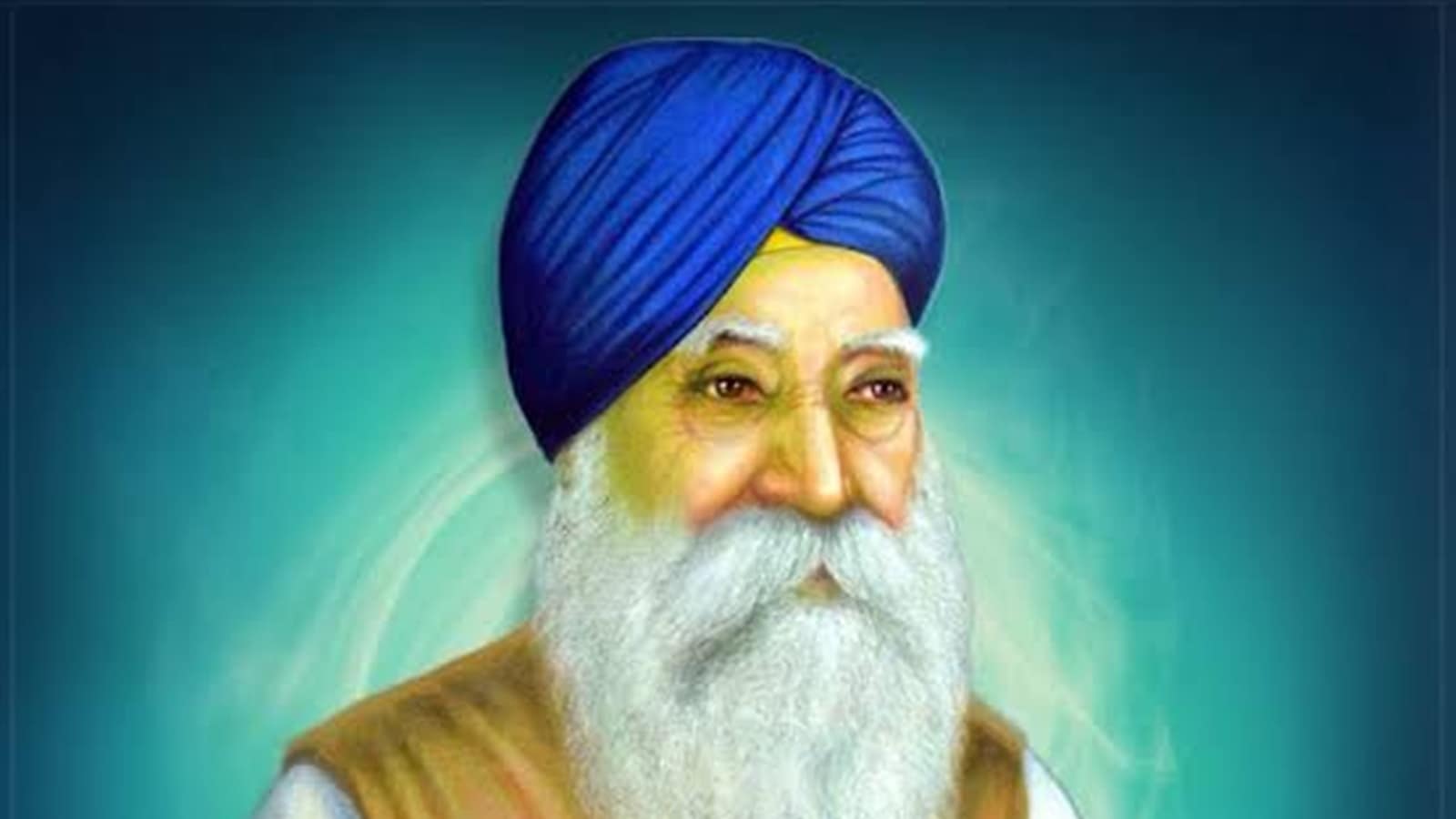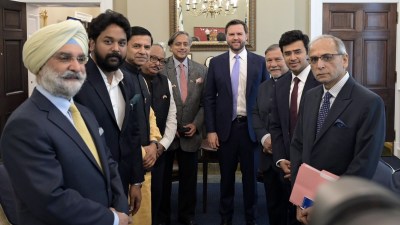Shiromani Akali Dal (SAD) president Sukhbir Singh Badal recently urged the Centre to bestow the Bharat Ratna on the late Sikh leader Master Tara Singh who was instrumental in setting up the Shiromani Gurdwara Parbandhak Committee (SGPC) and had raised the demand for a separate state for Punjabis. Tara Singh is said to have guided the Sikhs during Partition and convinced them to be a part of India.

Born into a Hindu Khatri Sehajdhari Malhotra family in the village of Haryal near Rawalpindi on June 24, 1885, Nanak Chand was greatly influenced by stories of Sikh martyrs. He developed strong reservations against Arya Samaji activists and became a baptised Sikh at a young age, adopting the name Tara Singh.
Tara Singh, who joined his first anti-British agitation in 1907, completed his graduation from Khalsa College of Punjab University before getting a job as the headmaster of Khalsa High School, Lyallpur. Singh would spend his salary for the school and soon came to be ‘Master’ Tara Singh. He also published two Punjabi newspapers for some time.
He was among the founding members of the SGPC and the Shiromani Akali Dal (SAD) as both came into existence in 1920. Master Tara Singh played a leading role in the largely non-violent gurudwara reform movement for the next five years and went to jail several times while seeking to take back control of gurudwaras from the Britishers. The Gurdwara Act of 1925 not only provided legal status to the SGPC but also elevated Master Tara Singh as a national leader.
Congress links
Like many Sikh leaders of the time, Master Tara Singh was a member of both the Congress and the SAD. The relationship with Congress was, however, complex and defined by Sikh interests.
Having successfully conducted a non-violent movement, Sikhs were in demand for the Congress party’s protests across the nation and Master Tara Singh promoted such participation against the British. During the Congress session in Madras in December 1927, he managed to pass a resolution to ensure that Sikhs would be included when the issue of representatives in the legislature was decided.
The Nehru Committee report of 1928 – which sought provincial autonomy and a federal system of administration – was highly disappointing for Master Tara Singh who alleged that it did not address Sikh concerns related to representation. In his statement in Kolkata in January 1929, Mahatma Gandhi also agreed that justice was not done to Sikh demands in relation to the Nehru Committee report.
Story continues below this ad
Master Tara Singh opposed the Congress again over its position on the Communal Award of 1932 – which sought separate electorates for Muslims, Sikhs, etc – and accused the party of working under the influence of the Muslim community and overlooking the interests of Sikhs.
He was nominated as a Sarab-Hind Congress delegate in January 1937, the same year the SAD contested Legislative Assembly elections in alliance with the Congress.
Civil Disobedience Movement
Despite sharp differences with the Muslim League and Congress leadership over Sikh interests, Master Tara Singh enthusiastically participated in the Civil Disobedience Movement and other agitations against the British government. He even sent an Akali Jatha to Peshawar in support of Pathans who faced British atrocities during the Civil Disobedience Movement.
Master Tara Singh left for Peshawar on May 10, 1930 with a hundred Sikhs. He was arrested in Lahore, whereas other members were beaten up with sticks to stop their march to Peshawar. Though Master Tara Singh was jailed, he was elected the SGPC president.
‘Azad Punjab’ to oppose Pakistan
Story continues below this ad
At a party conference in February 1940, the SAD opposed the idea of Pakistan and repeated its demand for ‘Swaraj’ and an undivided India. Master Tara Singh was of the view that the Congress was soft in its demand for Pakistan and he approached right-wing Hindu bodies for support.
The SAD later passed a resolution demanding an ‘Azad Punjab’ or ‘Independent Punjab’ – a term coined by Master Tara Singh in June 1943 – in case Pakistan was created.
Meanwhile, he also participated in the Akhand Hindustan conference in Ludhiana on November 2, 1944 to stop the formation of Pakistan. Master Tara Singh and other Sikh leaders failed to stop the Partition and decided to remain with India instead of accepting Muhammad Ali Jinnah’s offer to Sikhs to join Pakistan. Master Tara Singh also took special care of families that were victims of the Partition.
Agreeing to a ‘regional formula’
At the time the Indian Constitution was being drafted, Master Tara Singh decided to call a conference in Delhi to push for the SAD’s demands. However, he was arrested on the way to Delhi on February 19, 1949. It was his first arrest in Independent India.
Story continues below this ad
Arrested several times during the Punjabi Suba movement, which sought the creation of a Punjabi-speaking state, Master Tara Singh took a step back and agreed to the ‘regional formula’ to solve the deadlock over the language issue in Punjab. The regional formula was to create two regions in Punjab without dividing the state. As per this, it was proposed to create regions in Punjab where Punjabi or Hindi would be the first language depending upon the population. Meanwhile, the Jana Sangh continued to oppose it, bringing the Congress and the SAD close.
Singh met then prime minister Jawaharlal Nehru on June 30, 1956 and started negotiations about resuming double membership in the SAD and Congress. It started a brief period when the SAD quit politics and limited itself to religion and cultural activities. However, that did not last long as Master Tara Singh announced his departure from the Congress in January 1957, accusing the Congress of discriminating against the Akali Dal in seat distribution. The Congress won 118 seats in the Punjab Assembly in 1957 and 18 of these were on SAD quota. Singh could not win a seat, but his vote share was more than 23 per cent.
Comeback
The defeat of Master Tara Singh in the SGPC president elections in 1958 was seen as the defeat of the Punjabi Suba movement. It was alleged that then Punjab chief minister Partap Singh Kairon and other Congress leaders had used their influence to remove Singh. In the SGPC elections held in 1960, the SAD won 132 out of the 139 seats with a thumping majority that Master Tara Singh hailed as a referendum in favour of the Punjabi Suba movement.
Caste reservation
Master Tara Singh also launched a campaign to ensure reservation for Sikhs from the so-called lower castes. After writing letters to the Prime Minister and President, he started a jatha from Anandpur Sahib, launching an agitation. This time, Nehru called him for talks and eventually Mazhabi Sikhs, Ramdasias, Kabir Panthis and Sikligars were included in the Scheduled Castes list.
Story continues below this ad
Singh also picked Gopal Singh Khalsa as the Leader of the Opposition in the Punjab Assembly in 1952. Khalsa was the first Dalit to hold the post.
Master and Parkash Badal
Master Tara Singh dominated Sikh politics in the first half of the 20th century, and Parkash Singh Badal dominated the second half. Both were at a crossroads when Master Tara Singh and Sant Fateh Singh ran two factions of the SAD before the 1965 SGPC elections. Fateh Singh won the election with a huge majority and young Badal was close to him. This paved the way for the rise of Sant Fateh Singh and eventually that of Parkash Singh Badal.
Later, Badal would use Tara Singh to target the Congress and Nehru. “When we got Independence, our leader Master Tara Singh asked Nehru to fulfil the promise but Nehru jailed him… This was how Master Tara Singh was appreciated for all the sacrifices done by the community,” Badal said in his speech in 2020.
Master Tara Singh died on November 22, 1967 with Rs 36 in his bank account.









